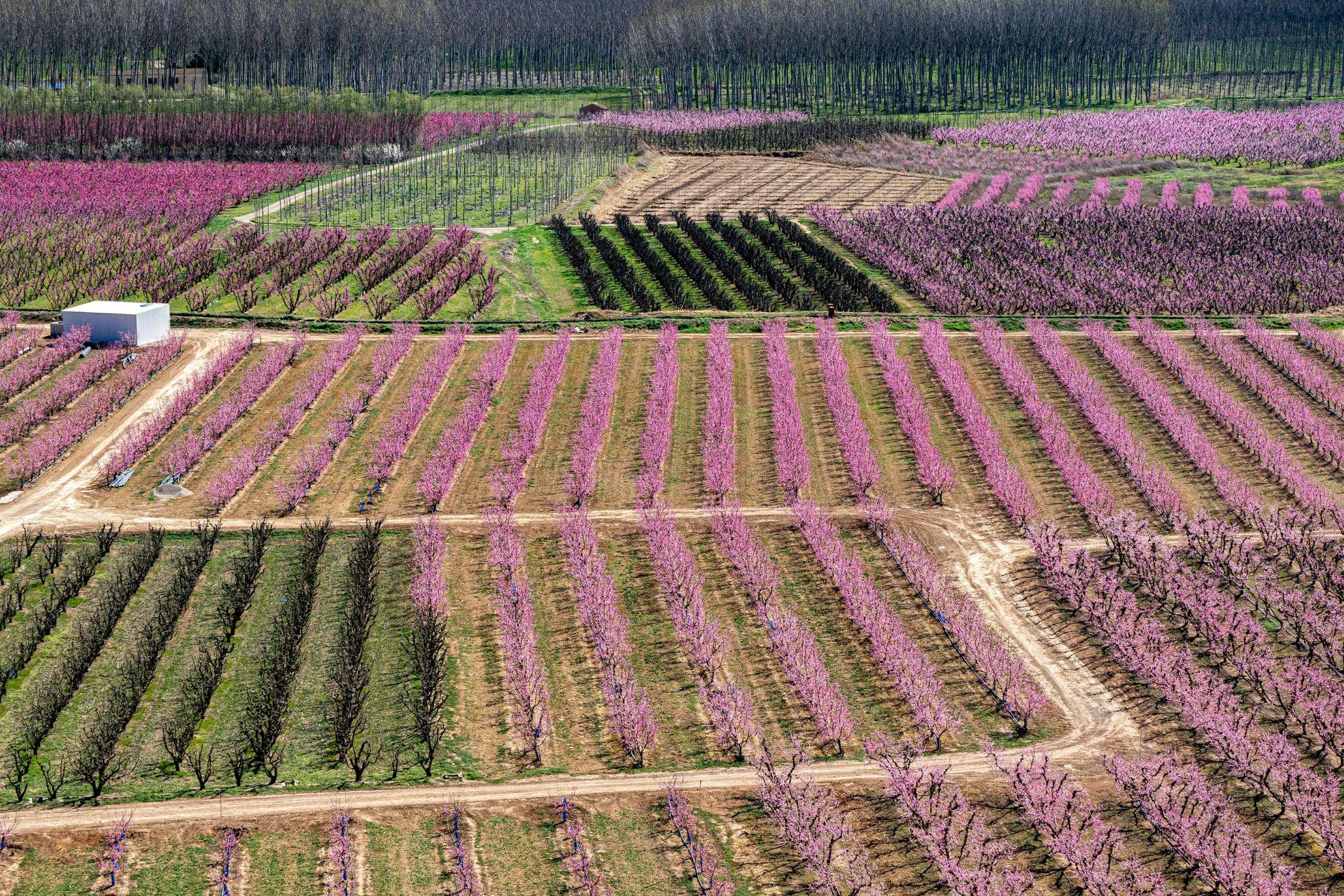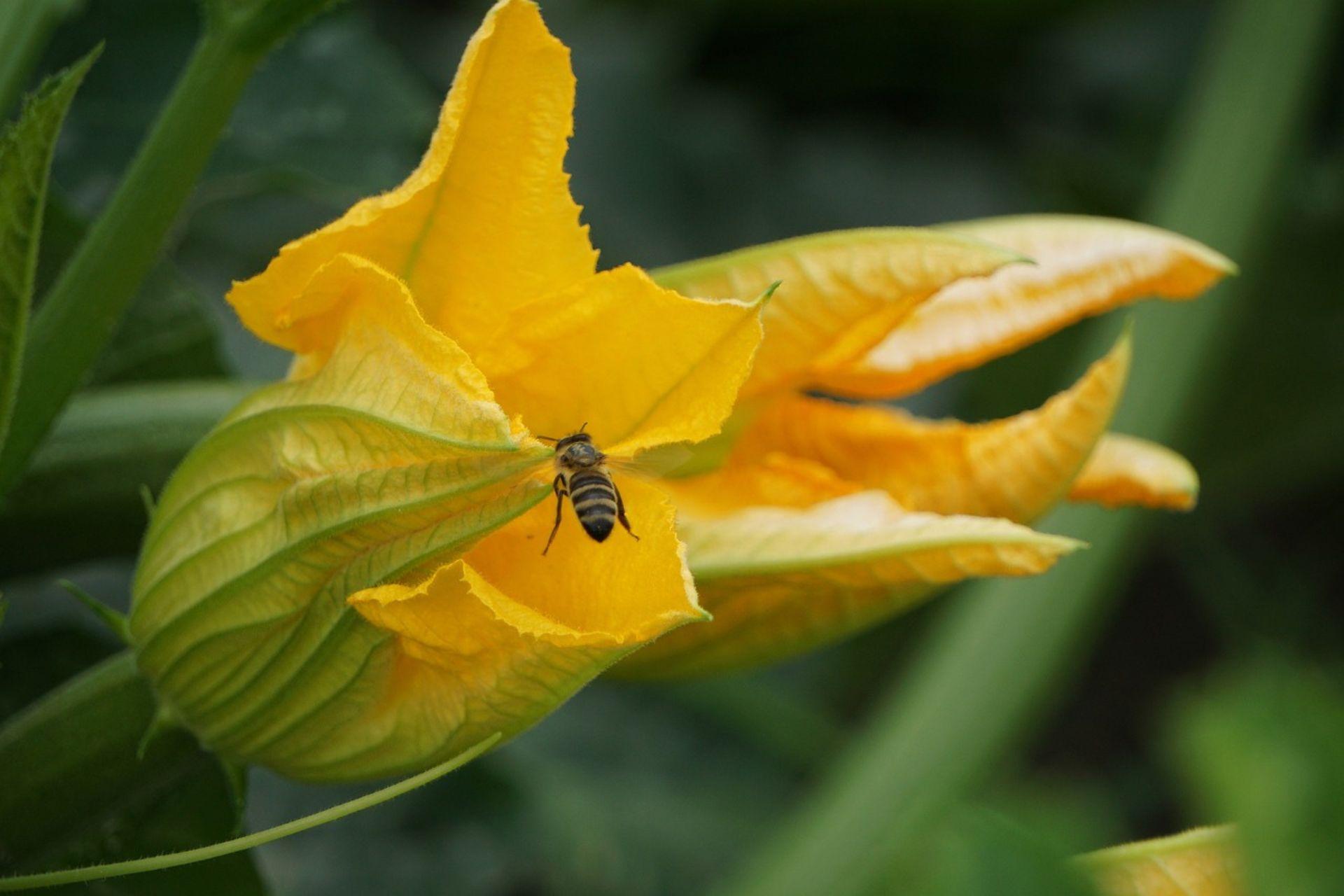
Applying BioAksxter® during Flowering: damage-free treatment
During crop flowering, it is often customary to interrupt treatments in agriculture. This delicate phenological phase requires particular caution, as interventions usually pose risks to pollinating insects and crops, compromising agricultural production. Treatments are generally carried out before the buds show flower colouration or after the petals have completely fallen and once fruit set has occurred.
Yet, by using BioAksxter®, it is possible to carry out treatments even during the flowering phase without jeopardising plant health and pollination efficiency. This represents a significant step forward in ensuring the health of crops (and others) during one of the most sensitive phases of their growing cycle.
Effects of Flowering Treatments with BioAksxter®, the product according to Nature
That's why BioAksxter® is the ideal solution for environmentally and health-friendly flowering treatments:
- Promotion of natural pollination: contrary to chemical treatments that are detrimental to pollinators, BioAksxter® is very attractive to bees, which show intense foraging activity not only for nectar and pollen, but also for the newly distributed product.
- Increased pollen fertility: pollen vitality and fertility are increased, thus improving the quality and quantity of the fruit produced.
- Promotion of self-pollination: in unfavourable climatic conditions, in the absence of pollinating insects or in protected environments (greenhouses, insect nets, etc.) BioAksxter® promotes self-pollination ensuring greater resilience and improved crop production.
- Resistance to cold damage: plants treated with BioAksxter® develop greater resistance to cold damage (temperature fluctuations, frost, etc.).
- Overall improvement in flowering: plants treated with BioAksxter® show a greater abundance and duration of flowers with uniform development.
In addition to the above, BioAksxter® is distinguished by its multiple actions, which you can read about here according to the type of cultivation.

Flowering Treatment and Bee Protection
The protection of bees and pollinating insects in general is also a vital issue for the biodiversity and health of agricultural ecosystems. Suffice it to say that 84% of cultivated species in Europe depend on insect pollination.
Unfortunately, however, bees are exposed to numerous risks, even during the flowering phase, mainly due to plant protection treatments whose active ingredients consist of dangerous and harmful chemicals. Bees, during their pollination work, come into contact with pesticides and other chemicals used to protect crops, endangering their health and compromising their ability to survive (bee mortality). All this contributes to the steady decline in biodiversity.
On the contrary, BioAksxter® promotes the health of bees, ensuring their vital role in pollination, without being damaged by harmful substances. This is an important step towards creating a sustainable, ecosystem-friendly agricultural environment, where the protection of bees and other pollinating insects is a priority.

Provisions on flowering treatments
During the flowering period of crops, there are specific regulations to be observed regarding agricultural treatments. These obligations are published in fruit bulletins, phytosanitary guides, etc. The regulatory authorities prohibit these treatments with plant protection products on spontaneous vegetation, herbaceous, tree and ornamental crops, and when the vegetation below the crops is in flower.
These provisions make people believe they want to safeguard the environment and biodiversity and promote environmental sustainability and social responsibility, but in reality, it is simply a stop to treatments for 2-3 weeks. After that everything resumes as before.
It is important to note that in Italy, regulations regarding flowering treatments differ considerably from region to region, depending on local agricultural policies and regulations. This regulatory heterogeneity creates confusion and disparities among farmers operating in different contexts, making it difficult to adopt uniform and consistent agricultural practices nationwide. This means that the quality of the agricultural product is quite different.
Against nature: products to promote fruit set and reduce fruit drop
Natural pollination is undergoing an unprecedented crisis due to dwindling populations of bees and other pollinators with consequences on fruit set and physiological fruit drop. Although pharmaceutical companies offer unnatural solutions such as products to promote fruit set and reduce fruit drop, the use of these chemical substances does not compensate for the lack of pollination activity and does not restore environmental balance.
Firstly, it is a buffer measure that does not address the causes of pollinator decline. Secondly, the use of products to promote fruit set and reduce fruit drop poses additional risks to human health and the environment, with still poorly understood effects on biodiversity and agricultural ecosystems.
In short, the farmer is more inclined to take the ‘chemical shortcut’ instead of tackling the problem at its root. In a context in which nature itself is sounding alarm signals, the adoption of these inappropriate solutions further confirms the undermining of the ecological balance.
It is time to abandon old paradigms and embrace solutions that keep pace with nature and promote the long-term prosperity of crops and agricultural ecosystems.